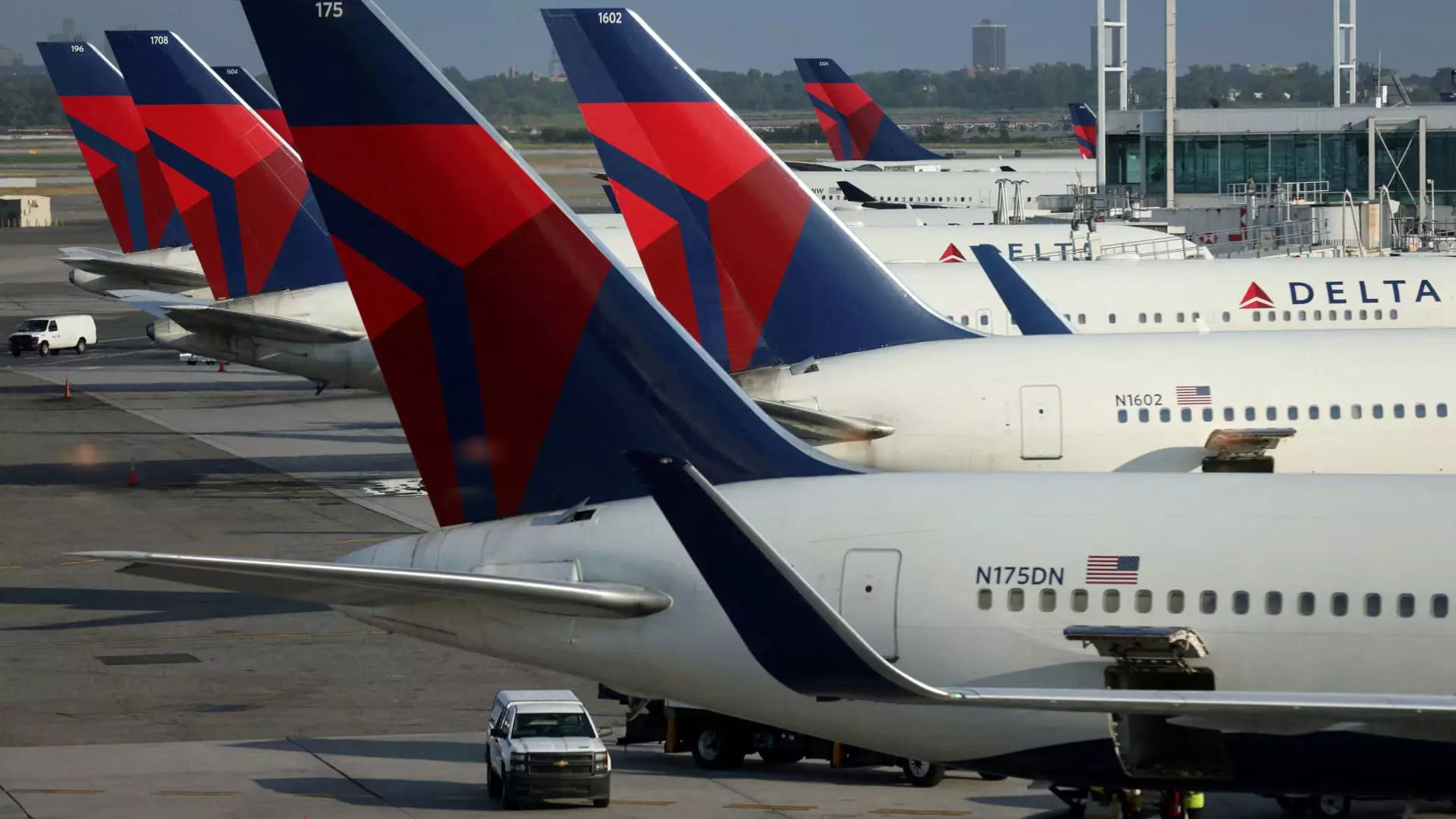In a significant turn of events, Delta Air Lines recently initiated legal proceedings against cybersecurity firm CrowdStrike, stemming from a catastrophic software outage that transpired in July. This legal action, filed in Georgia, highlights the repercussions of technology failures within critical infrastructure and raises pertinent questions about accountability in the tech industry. Delta’s claims against CrowdStrike revolve around allegations of breach of contract and negligence, emphasizing the broader implications such incidents can have on business operations and revenue.
The July outage caused an unprecedented disruption, resulting in the cancellation of around 7,000 flights and severely impacting millions of computers globally. Delta reported staggering losses amounting to $380 million due to reduced operations and an additional $170 million incurred from recovery efforts. In contrast to other airlines, Delta struggled to recover from the outage, which raises concerns about its operational resilience in the face of technological vulnerabilities. This dissimilarity in recovery times among airlines underlines the varying degrees of dependency on technology and the potential risks associated with it.
Within the lawsuit, Delta contends that the software update implemented by CrowdStrike was not subjected to adequate testing or certification. The airline claims that the flawed update led to a breach in its systems, allegedly allowing unauthorized access through Windows, a vulnerability that Delta states it would never have tolerated under normal circumstances. Delta’s assertions suggest a fundamental failure on CrowdStrike’s part to adhere to the promised standards of software rigor, further complicating the narrative surrounding cybersecurity in aviation.
Delta’s CEO, Ed Bastian, has vocally expressed the necessity for full compensation due to the chaos inflicted upon the airline’s operations. His comments underscore the significant burden on businesses due to technological failures and the critical need for robust safeguards. Moreover, the incident serves as a cautionary tale for companies reliant on technology in their operations, emphasizing that lapses can lead to financial ruin and reputational damage.
CrowdStrike’s Response and Industry Reactions
In response to the allegations, CrowdStrike’s CEO, George Kurtz, extended an apology and acknowledged the need for improved practices to avert future occurrences. The company’s intent to amend its operational protocols points to a broader awareness of the essential role of diligence in cybersecurity endeavours. Additionally, Microsoft’s engagement with CrowdStrike and other security vendors for potential enhancements signifies a collective industry effort to address and mitigate the impacts of such disruptions.
The legal battle between Delta Air Lines and CrowdStrike serves as a stark reminder of the vulnerability inherent in our increasingly digital world. With airlines already burdened by the repercussions of the pandemic, this incident could spark renewed scrutiny of software vendors and their accountability. As the situation unfolds, both firms—and the broader industry—must reckon with the ramifications of technology failures while striving to enhance their resilience against future threats. The stakes are high, and the outcome of this lawsuit could set significant precedents in contractual obligations and operational accountability within the tech and aviation sectors.


Leave a Reply